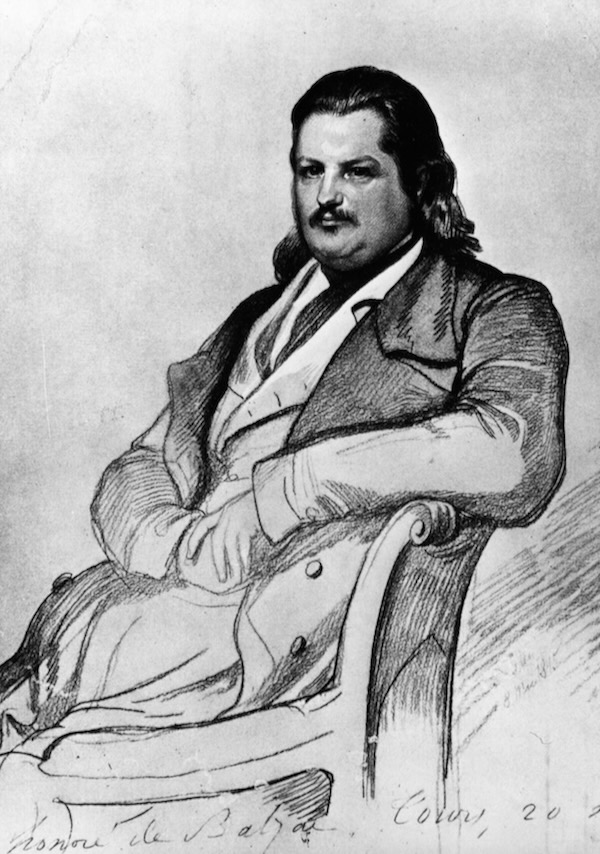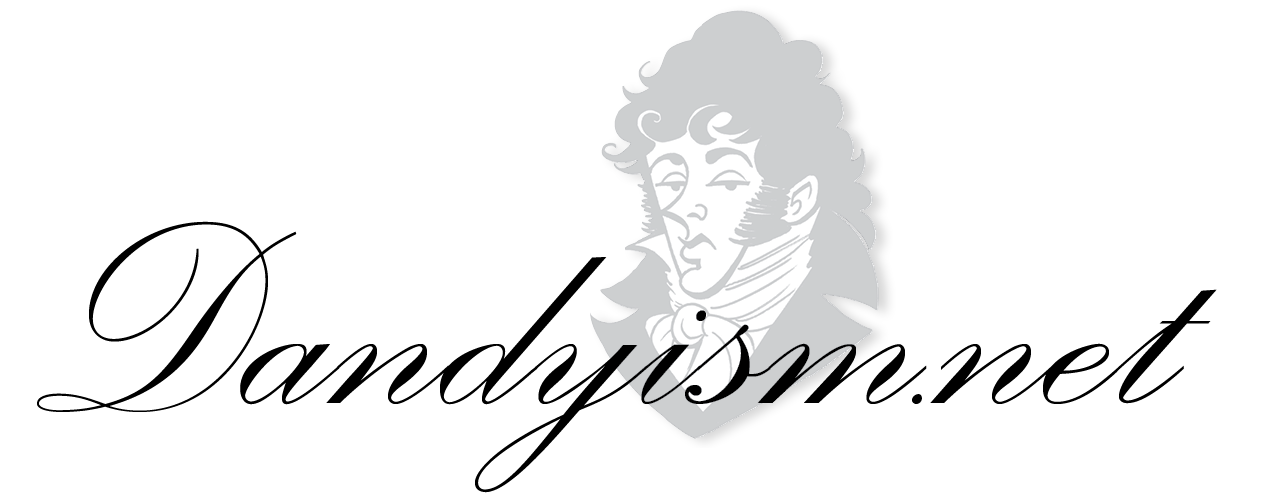![]()

Every era has its particular expression of elegance. But while that expression is forever in flux, the principles that govern it are fixed and eternal. So argues Honoré de Balzac in his “Treatise on Elegant Living,” a breezy philosophic tome written in 1830 recently given its first English translation by Wakefield Press, a small new publisher in Cambridge, Massachusetts devoted to rare and forgotten works of European literature.
The “Treatise on Elegant Living” brims with timeless aphorisms that transcend the ever-changing guise of fashion. Take, for example, the following evergreen gem: “Good has but one style; evil a thousand.” For Balzac, a few of the thousandfold manifestations of sartorial evil include any outfit that bears excessive ornamentation or a profusion of colors. Then there’s what in the fashion industry is called “working a look,” an act of folly whose sin is meretriciousness. :Anything that aims at an effect,” pronounces Balzac, “is in bad taste.”
Full of wit and wisdom, the “Treatise” is the kind of book every boulevardier should keep in his armoire and read a passage from each morning before getting dressed. It is a breviary for the dandy-aesthete who sees life as an art project, and for those who see style is an existential imperative, who feel a burning need to leave their mark everywhere they go and on everything they do. Such acolytes of style will find a perfect mantra in Balzac’s line “Elegance dramatizes life.”
SELECTED APHORISMS
Elegant living is, in the broad acceptance of the term, the art of animating repose.
The man accustomed to work cannot understand elegant living.
It is not enough to become or to be born rich to lead an elegant life: one must feel it.
Though elegance is less an art than a feeling, it is also the result of instinct and habit.
Retailers, businessmen, and teachers of the humanities fall outside the scope of elegant living.
Anyone who does not frequently visit Paris will never be completely elegant.
Studied elegance is to true elegance what a wig is to hair.
Anything that reveals thrift is inelegant.
Clothing does not consist so much in clothes as in a certain manner of wearing them. Consequently it is not the rags in themselves as it is the spirit of the rags that one must grasp.
The boor covers himself, the rich man or the fool adorns himself, and the elegant man gets dressed.
Elegant living consists of nothing less than the perfection of material life, the development of grace and taste in everything that belongs to and surrounds us. It’s a quixotic endeavor that few men are capable of reaching completely, and some not at all. “Retailers, businessmen, and teachers of the humanities,” Balzac decrees, “fall outside the scope of elegant living.” The “Treatise” is thus not just an exploration of elegance, but an argument for a life of leisure. This may be difficult to swallow if you’re a wannabe fais neant who’s forced, by cruelty of fate, to work for a living. But time and money aren’t Balzac’s only prerequisites for elegant living. So are certain innate qualities that destine a man, from the moment he enters the world, to one day cut a dashing figure. “To distinguish our life through elegance,” Balzac writes, “one must still have been endowed with that indefinable faculty that always prompts us to choose truly beautiful or good things.”
That draconian necessity — to have been endowed — exemplifies Balzac’s rhetoric at its most rigidly elitist. For while elegance is something that is practiced daily — “A man must practice this science with the same ease with which he speaks his mother tongue,” he writes, for “It is dangerous to stammer in the elegant world” — it is also something, like any other talent, that only a select few are born with. “A man becomes rich,” is the book’s best-known quote, “he is born elegant.” Of course, man is also born naked: Clothing is what makes him civilized. And one should never underestimate the importance of wearing clothes, something everyone does and yet so few do elegantly. “Clothes are the most tremendous modification social man has experienced,” writes Balzac; “they influence all of existence.” — CHRISTIAN CHENSVOLD
This article originally appeard in issue #10 of The Rake, 2010.
Image: anonymous caricature of Balzac, 1835.


De Balzac animated repose (and secured his commemoration) by lots and lots of writing. That is Work. Believe me, that is Work.
“Teachers of the humanities fall outside the scope of elegant living” – tosh – witness Sir Arthur Quiller-Couch.
“Anything that reveals thrift is inelegant” – again, tosh: Sir Francis Bacon said (and de Balzac certainly knew it): “Extravagance breedeth poverty.” Meanness is different but its worst forms have little to do with cash.
“The boor” is better translated on the London Lounge as “the brute”.
Typo near the beginning: for ‘wisome’ substitute ‘wisdom’.
Nice article. Shame that you waited for the translation.
Thank you for posting this. If only the Northern Virginia bourgeoisie would read this. I have become rather unaccustomed to work.
Of course, that’s rather humorous coming from a man who was generally regarded as the very definition of inelegance, a formidable worker and a rather unapologetic… what do you call a man who courts a richer woman?
But Balzac is nothing if not entertaining!
Hi,
Great article! and blog come to that! I was just wondering what the original French title to the ‘Treatise on elegant living’ was?
Also, do you know what the original French was for the quotation ‘Anyone who does not frequently visit Paris will never be completely elegant.’ ?
Thanks very much,
Jessica
Balzac piece was marvelously written & conveyed by Christian Chensvold, but my ever present question for Dandyism.net is what’s in tow for Spring Slast Summer(2011)? -Dandy Ghurron Briscoe (Tuesday,May 03,2011)
Balzac’s aphoristic declarations may not go over too well with today’s hipsters…
It’s as well face it; we are most of us, all too spitefully stricken by the “cruelty of fate” which condemns the elevated to work for a living. A delightfully conveyed article, nonetheless and despite being burdened with M. Balzac’s more depressing axioms.
As to the last listed aphorism; if only today’s boors would do more to cover themselves.
In The book ” el vestido habla” by Nicola Squicciarino, she quotes Balzac in her preface but gives no page reference.
I believe it is from “Treaty of an elegant life”,but I can find it. I want it in the original French. In Spanish it is, El vestido es como un barniz que da relieve a todo.
Thanks for any help!!
Maura
Maura, If you can translate into English, I may be able to track down the original French.